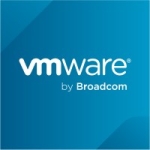What is our primary use case?
We primarily use the solution for deploying containers and scheduling the jobs to the Kubernetes for our server-side deployment.
How has it helped my organization?
Before we switched to Kubernetes, we had been using a solution that required a manual interaction with the server. Every time you need to scale it up and down, it was a lot of hassle. With this solution, we were able to add continuous integration with Kubernetes. We can trigger the automatic deployment and it will just be deployed and nobody needs to go and do anything. In terms of scaling, we can define the scalability rules, which will grow as the traffic grows, as opposed to past instances where you needed to change the instances of the CPO, etc.
Since we are saving so much time, we're also saving our company money. We're saving a few hours of work a week at this point.
What is most valuable?
The ease of use in the solution is a very valuable aspect for us.
The scalability of the product is excellent. Scalability is particularly important to us due to the fact that we have available traffic that requires our service to scale up and down according to the load on the service.
What needs improvement?
It would be very interesting if they could introduce a template engine to set dynamic values in the deployment time. It would be ideal if it could be native in Kubernetes as it would be much easier.
For how long have I used the solution?
I've been using the solution for three to four years.
What do I think about the stability of the solution?
In this particular deployment, we've had the solution running for a little bit less than a year, and we have had zero stability issues. It's extremely stable. There are no bugs and glitches. It works without fail and is very reliable.
We had one instance once where it disappeared once for an instant, and nobody even noticed anything was wrong. That said, I do not think that was a fault of Kubernetes. It was more about an AWS issue.
What do I think about the scalability of the solution?
From the perspective of managing Kubernetes and deploying and updating, we have two developers (one team leader and a DevOps). We taught four people to actively use and manage it. Then, almost everyone is using some service that is running on Kubernetes (about 15 or so people), therefore, it's widely used at our organization.
We do have plans to increase usage in the future. We're planning to scale as we go where we will add more services and more deployments into Kubernetes.
How are customer service and technical support?
We don't directly reach out to technical support. Rather, we tend to use their available documentation for troubleshooting.
How was the initial setup?
We are using it on AWS, and it was fairly easy to deploy. As far as I know on other platforms, it is also quite easy as they have a faster-managed service. However, if I deploy it manually myself and manage the nodes by myself, it's pretty complex. Therefore, it can get pretty complex. Using the AWS managed solution removes the complexity for us.
The deployment took us about two days with testing, et cetera.
At the first stage, we had to wrap everything on our server-side, with the applications in the Docker containers. Then we deployed the ETS to the cloud and then we deployed the containers into the ETS. After that, we switched the browser to point to the newly deployed containers and load balance cells instead of the old machines. After that, we switched off the old machine.
What about the implementation team?
We handled the deployment ourselves. We didn't need the assistance of any consultants or integrators.
What was our ROI?
Technically, we pay either way. We had the machine that we paid and we switched it off. We didn't really save on money investment so much as stability investment. We invested in this environment in order to attain a more stable and predictable application. That was our ROI.
What's my experience with pricing, setup cost, and licensing?
The solution can be more expensive for smaller companies. If you run it on a smaller scale it's pricey. However, if you scale up or use it on a larger scale, it's pretty competitive in the pricing.
For example, on Amazon, the billing is mostly for the machines that you're using. If you have a lot of containers, hundreds of containers, running on the ECS, it can even be more expensive than if you were running the same containers on some deployment as you're paying for the nodes that are running the machines. If you can use fewer containers in the same machine it can be cheaper. It really depends on deployment.
If you decide to take the managed service, be aware that it's $100-$200 extra monthly. It's not much, and it's worth the cost.
Which other solutions did I evaluate?
We did evaluate Amazon's Elastic Container cluster before ultimately choosing this product.
Kubernetes is multi-platform. You can run it on any cloud and you can also run it on your local machine. The implementation is also much more straightforward with Kubernetes and deployment is easier. Even though the product is from Amazon themselves, Kubernetes is easier to maintain and deploy.
What other advice do I have?
I would advise new users to take the managed solution. Don't deploy it by yourself. Just take a managed service. It's really worth it. I advise this due to the fact that it's a lot of time and effort. It's not that expensive in terms of overhead. It may be $100 or $200 or something like that monthly. When you pay $3,000, let's say, the $100 doesn't really matter. However, the work that your DevOps will have will be costly. They will initially invest to maintain your unmanaged deployment.
On a scale from one to ten, I would rate this solution a ten.
Which deployment model are you using for this solution?
Public Cloud
Disclosure: My company does not have a business relationship with this vendor other than being a customer.
















